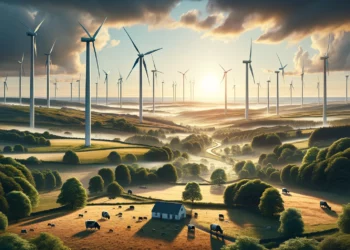The International Renewable Energy Agency claims doubling worldwide renewable energy capacity fifteen years from now would provide savings which far exceed the costs. It would create more jobs, boost economic growth and save millions of lives annually through reduced air pollution. All the incentives seem to be here, especially money wise — it would be expensive not to scale renewable energy, the report concludes.

The key findings of the report titled “ Roadmap for A Renewable Energy Future” are:
-
It would result in 24.4 million jobs in the renewable energy sector by 2030, compared to 9.2 million in 2014;
-
It would reduce air pollution enough to save up to 4 million lives per year in 2030;
-
It would boost the global GDP by up to USD 1.3 trillion;
-
It would limit average global temperature rise to 2 °C above pre-industrial levels (when coupled with energy efficiency);
- It would avoid up to 12 gigatonnes of energy-related CO2 emissions in 2030 – five times higher than what countries have pledged to reduce through renewable energy in their nationally determined contributions (NDCs).
A number of factors are considered in estimating REmap Options, including resource availability; access to finance; human-resource needs and supply; manufacturing capacity; policy environment; the age of existing capital stock as well as the costs of technologies by 2030. The substitution cost is the difference between the annualised costs of the REmap Option and a non-renewable energy technology used to produce the same amount of energy (e.g., electricity, heat), then divided by the total renewable energy use in final energy terms.

Some countries already have a 30% RE share already in their energy mix. Others, like the United States, lag far behind but makeup for in potential. So does the United Arab Emirates (UAE).
“This analysis demonstrates that the transition to renewable energy is about doing more than simply switching sources – it shows how renewable energy is a critical tool for sustainable development. We see the evidence in the world around us, where hundreds of jurisdictions worldwide are showing that development benefits are maximized by going 100% renewable.” Anna Leidreiter, Senior Programme Manager Climate Energy at World Future Council
“Renewable energy has a huge potential for mitigating climate change, which this report of shows, while at the same time offering great potential for development and green inclusive growth. Because of its decentralised character renewable energy can offer access to energy to all people in all regions, to people who are not in economic centres or in power, supporting equity, education, health, community services and productive use.” Eco Matser, climate and energy program manager at Hivos






